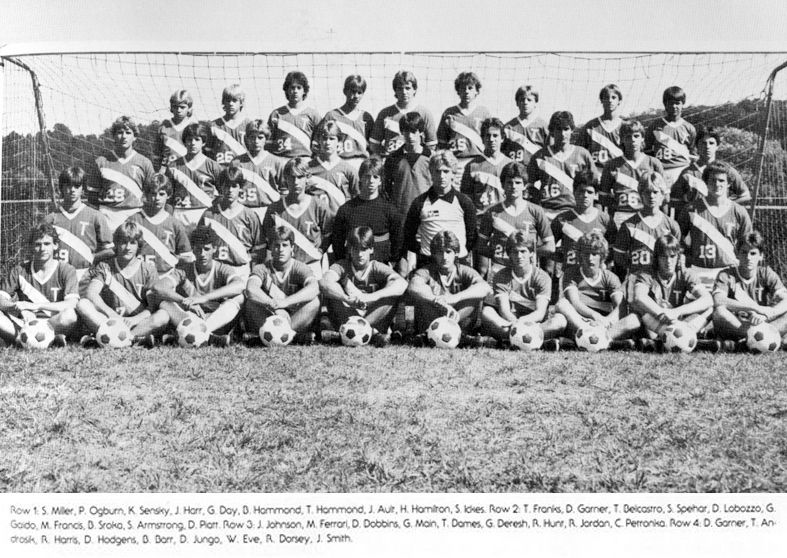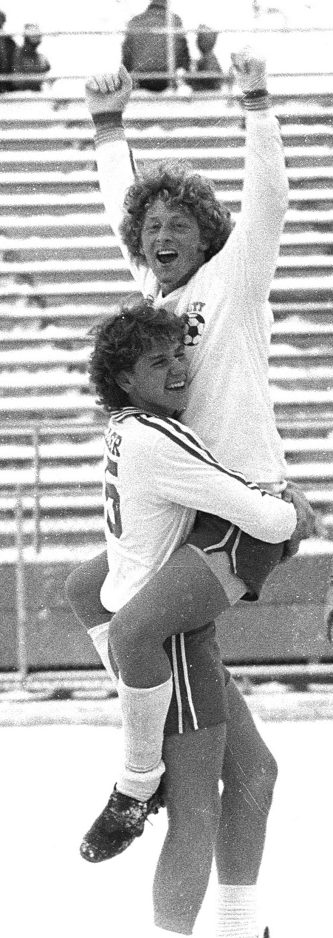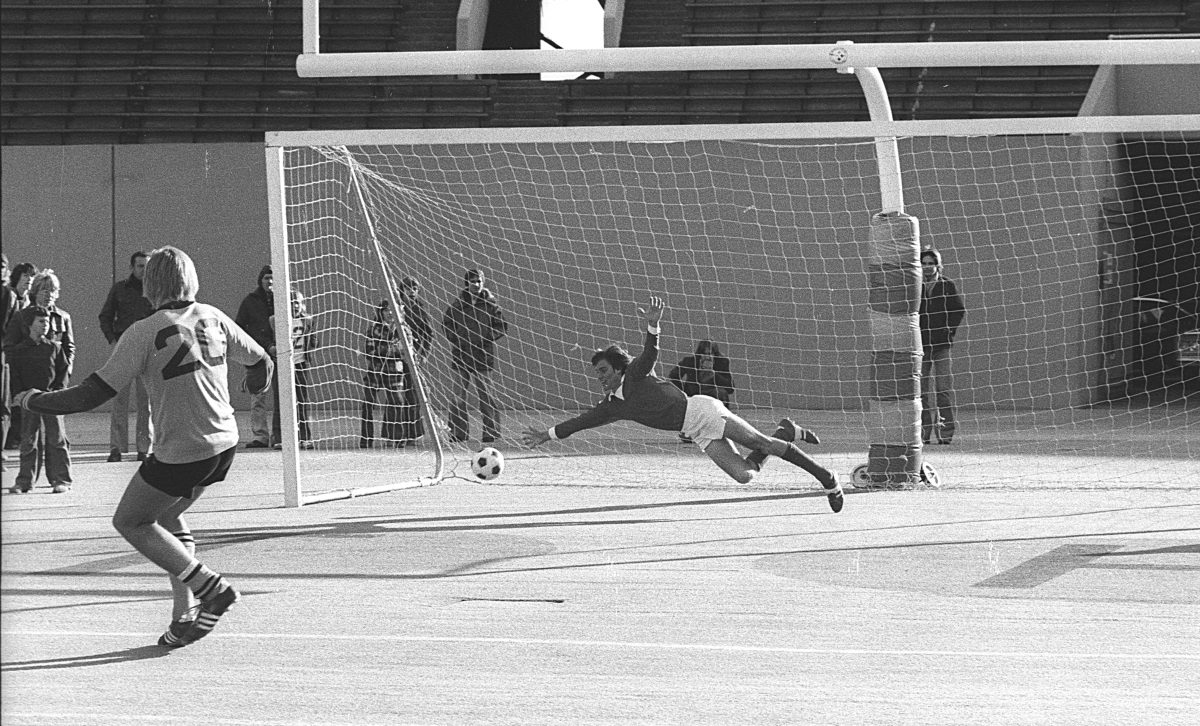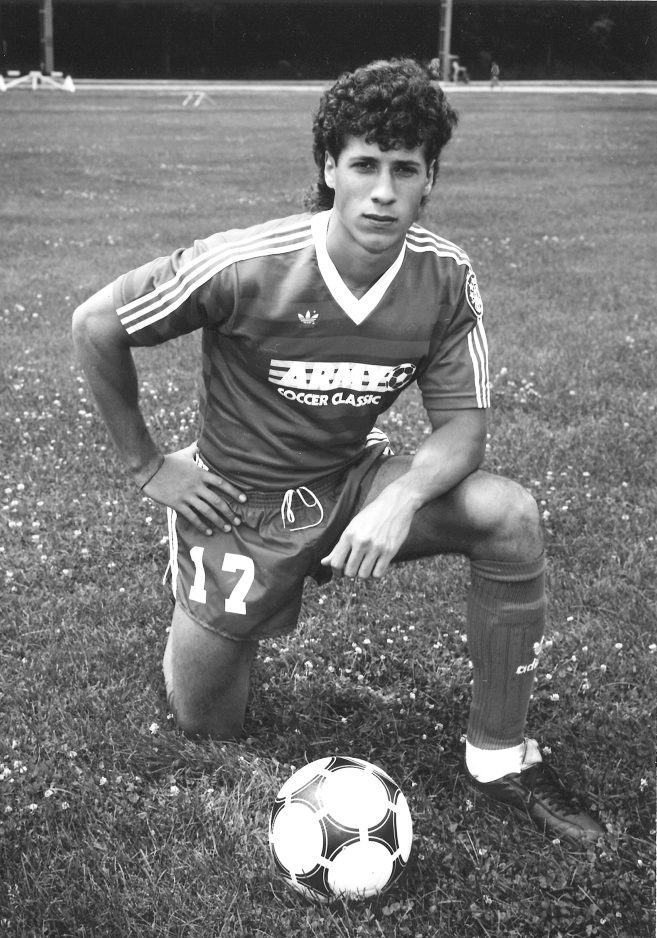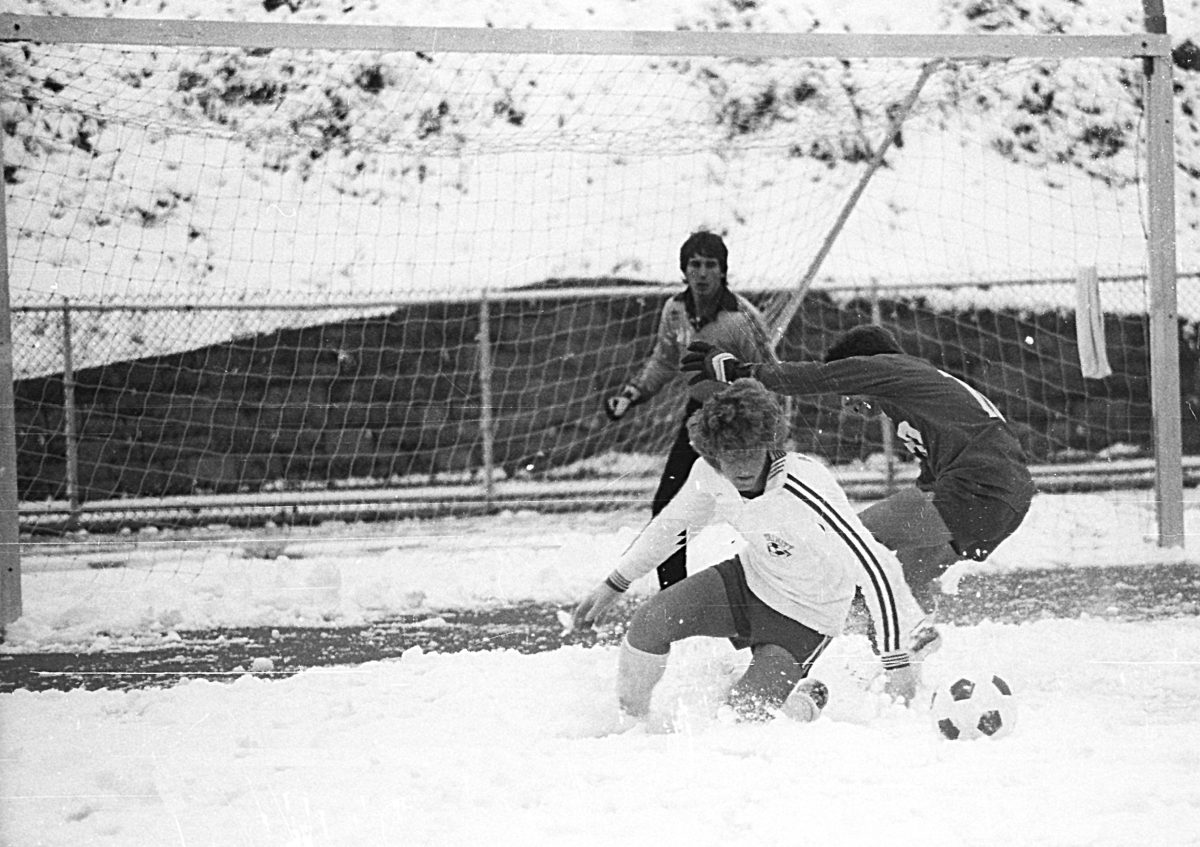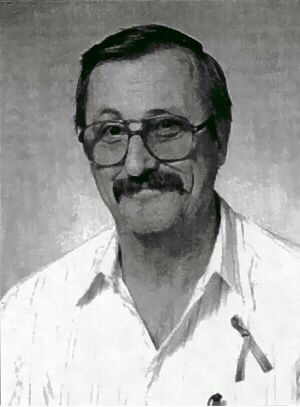Co-PIAA champion Trinity soccer team had ‘mad desire not to lose’
As the sky darkened and the longest game in the history of Pennsylvania high school soccer moved into an unprecedented 16th overtime period, the feeling among the determined Trinity High School boys soccer team was that no matter what, defeat was not acceptable.
“We had a mad desire not to lose,” said starting defenseman Scott Armstrong of the 1983 Hillers.
On that day, Nov. 19, 1983, Trinity did not lose. The Hillers and unbeaten Bethlehem Freedom, tied 1-1, at Shippensburg University. The game was declared a draw by the PIAA after the two soccer juggernauts fought through 80 minutes of regulation and 16 five-minute overtime periods – 160 minutes in all.
The decision left the teams PIAA co-champions.
“What is forgotten sometimes is that Trinity played overtime the day before in the semifinals,” said Bob Grove, who covered both games for the Observer-Reporter. “Then they play a game that was essentially two games. In a span of about 24 hours, they played three games, at the highest level of competition in the state.
“Those kids played four hours of soccer for a state championship, the biggest game of their lives. After so long, we covering the game were all saying they are exhausted. They literally were exhausted. It became evident as it went on. Kids were playing in spurts. When the ball got to them, they mustered up a little more energy and played at a certain pace.
“As the game went on, everyone realized the likelihood of a goal decreased. When it was over, many of them literally fell over. A lot of those boys were hanging on and at the end, they literally had no more to give. It was amazing.”
Equally incredible was that Bethlehem Freedom played a man short – 10 players instead of 11 – because of a player ejection for the last 35 minutes of the game, which was seven overtime periods.
In 1983, PIAA postseason games ending in a regulation tie were decided by playing two 10-minute overtime periods. If a decision was not reached, penalty kicks determined the winner. But in a championship game, penalty kicks were not used. If a winner was not determined by two mandatory five-minute overtime periods, then the teams played a succession of five-minute sudden-death overtimes until the tie was broken.
Or, in Trinity and Bethlehem Freedom’s case, it became too dark to play at all.
By the 14th overtime, PIAA officials announced that only two more periods would be played. If neither team scored, they would be co-champions.
Kory Sensky, a junior forward and one of the Hillers’ greatest soccer players, scored Trinity’s goal. He just missed a second and state-championship winner in the final overtime. His shot with 3:15 left bounced off the goal post.
That is how close Trinity came to victory.
“We had an incredibly strong team in character and ability,” said legendary Hillers coach, Art Richardson. “We had ability and talent in all positions. I was blessed to have very talented players at Trinity, especially in that particular period of time.”
Trinity (27-2-3) was indeed loaded.
Six of the Hillers’ 11 starters were named All-WPIAL, including Jon Ault, Heath Hamilton, Greg Day, Sensky, the late Todd Hammond and goalkeeper Gregg Gaido.
Day, Sensky and Hammond were all-state selections. Day and Sensky were also members of the prestigious National Soccer Coaches Association’s regional All-American team.
Trinity’s 27 wins remains a school record.
Armstrong, who was an All-WPIAL player in his career, credits Richardson’s coaching excellence and the team’s togetherness as vital reasons for the success.
“There is no doubt the heart of that team was a reflection of Art,” Armstrong said. “He never wanted to lose. The heart of the team was bigger than the skill of the team.
“Remember, 13 or 14 players on that team played college soccer, a number played Division I.
“Honestly, the conditioning we did, allowed us to get through. Even in the state championship game, it didn’t bother us to play almost the entire game. We played with one sub the entire game. That was because of our superior conditioning. Art was a driver and a disciplinarian.”
Other key players for Trinity included Steve Miller, Bryan Hammond , Scott Ickes and the late Jason Harr.
“It was the most famous team I ever coached,” Richardson said. “Our 1984 team may have been better. But we lost two games, both to Mt. Lebanon. They were just better than us.
“Every kid on our team in 1983 understood the principle of teamwork. We had great individual talent and players, but they all submitted to the concept of team rather than individual. I found that so comforting. They really believed in that principle.”
In advancing to the WPIAL finals, Trinity atoned for a regular-season defeat at the hands of Mt. Lebanon, defeating the Blue Devils, 3-1, in the semifinals.
The Hillers came up short in the WPIAL championship game, losing to Moon and its generational player, Sean Shapert.
Trinity avenged that loss as well, upending the Tigers, 2-0, in the PIAA quarterfinals. Richardson changed strategy. Hamilton, who marked Shapert throughout the game, led a Hillers shutout.
“We changed tactics,” Richardson said. “The loss to Moon was my fault. Sean Shapert was so good. I had to make a coaching correction. We decided to shut down their passes, take away their lanes. The midfielders did a great job as did our defenders.”
Ault scored both goals and Trinity was off to the PIAA semifinals against State College.
After 100 minutes of play, the Hillers gained the state championship game, defeating State College, 4-2 on penalty kicks.
Trinity’s defense was stellar in the state playoffs.
“Let’s face it, (Bethlehem Freedom and State College) were great teams,” Richardson said.
Wrote Grove in the Nov. 21, 1983 edition of the Observer-Reporter: “Everybody knows what they say about defense and championships. You can’t have the latter without the former, and Trinity High School’s march to a share of the PIAA soccer title was as good an example as any.
“In their four PIAA playoff matches, the Hillers allowed just one goal, the one which earned Bethlehem Freedom a 1-1 tie here Saturday afternoon. That is, simply put, amazing.”
Said Armstrong: “I take, and I know our other players do as well, tremendous pride on being the only state championship team in Trinity history. When you are the best in the state, you take a lot of pride in that. To be part of a team like that is pretty special.”
Other members of that state championship team included: Randy Jordan, Bob Sroka, Todd Belcastro, Steve Spehar, Robert Hunt, Patrick Ogburn, David Garner, Danny Jungo, Jim Johnson, Billy Barr, Mark Bonus, David Hodgens, Dave Dobbins, Gary Deresh, Tony Franks, Chris Petronka, George Main, Daniel Darnet, Michael Ferrari, Russell Dorsey, James Smith, Michael Francis, Dennis Piatt, Ron Harris, Tad Dames and Dan Lobozzo.
J.C. Martin and Marty Strinisha were assistant coaches.
The 1983 Hillers posted a 20-game shutout streak, which was third all-time in the PIAA, a 24-game unbeaten streak and scored 121 goals.
What’s more, the 1983 team left a legacy. It was the first boys soccer team from Washington County to play for and win a PIAA title. Peters Township has since won four state crowns.
Being the first is special.
“Back then, there weren’t any limits on the amount of games a team could play,” Richardson said. “We pulled them out of the WPIAL competition during the season and played some teams in the eastern part of the state to keep an edge.
“We just had an exceptional group of guys, who understood what it took to be great. They accepted and listened to coaching. They were willing to make adjustments. There are certain things I did in coaching that you just couldn’t do today. Those guys disciplined themselves for the good of all.
“It was an amazing experience for everyone involved. Think about playing essentially three games in a 24-hour period at that high level with one substitute (Ogburn). That is how good of shape they were in. That’s how good of a team it was.”


